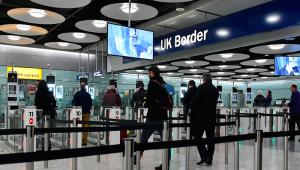She launched a “modern industrial strategy” that aims to take advantage of the UK’s potential liberation from EU state aid rules after Brexit, which will allow for more state support for specific sectors.
Number 10 said that at the heart of the scheme is a chance for businesses to strike new ‘sector deals’ with the government.
The plans could offer businesses a range of benefits, including deregulation or boosts to exports through trade or investment deals. Also, new institutions may be created to provide leadership, support innovation and promote skills.
However, in order to receive these benefits, businesses will need to work together to make the case for intervention to the government – as the automotive and aerospace industries already do successfully, Number 10 said.
May explained that this reflects a “new approach to government” that is “stepping up to a new, active role”, backing business and ensuring the benefits of growth are shared more widely.
Work has already started on bids for some sector deals, such as for life sciences, low-emission vehicles, industrial digitalisation and the creative industries.
The plan also envisages government investment in infrastructure and research to drive up sluggish productivity and create more high-skilled and high-paid job opportunities.
It sets out “ten strategic pillars” that underpin this element of the strategy. They included investments in science, research and innovation, upgrading infrastructure, improving strategic procurement and cultivating the UK’s world-leading sectors to build on areas of competitive advantage.
Developing skills, especially in science, technology, engineering and maths, will also be a priority. Number 10 said a new system of technical education will be built, benefiting the half of young people who choose not to go to university.
It could include maintenance loans, the creation of institutes of technology in every region, and 15 core technical “routes” that equip students with the skills most needed by employers in their area.
Speaking on BBC Radio 4’s Today programme, business secretary Greg Clarke said this idea was driven by the government’s belief the UK was falling behind nations like China when it comes to technical skills.
According to Number 10, new educational institutions will be built, along with other bodies, while some existing establishments will be strengthened. Local trade bodies, for example, could help promote a stronger voice for business within local government and improve access to finance outside of London.
An Industrial Strategy Challenge Fund will be established to support smart energy technologies, robots and artificial intelligence, and 5G mobile network technology. It will be funded with the £4.7bn earmarked for research and development to 2021 announced by the government in November.
Carolyn Fairbairn, director-general of the CBI, described the strategy as a “landmark opportunity” to build a successful modern economy and form the foundation for a “prosperous, fairer and more inclusive society”.
But Labour’s shadow secretary of state for business, energy and industrial strategy, Clive Lewis, said the government’s offer “looks like too little too late” and will “fall far short” of getting the economy back on track.
“The £170m announced for vocational education, for example, will do little to plug the £1.15bn hole in the adult skills budgets created by Tory cuts since 2010,” he said.
Liam Booth-Smith, chief executive of think-tank Localis, stressed that as well as a focus on education, the UK requires a blend of transport, tax and immigration reform if it is to flourish after Brexit, and these must be “locally led”.
He said May should pursue a new agreement with areas in the UK with high economic potential that gives new powers to city and regional leaders to deliver her vision. He noted this would be the largest single transfer of power since the first meeting of the revived Scottish Parliament in 1999.
Alongside the industrial strategy, May will also announce a £556m boost for the Northern Powerhouse scheme, to create jobs, support businesses and encourage growth.
Projects that have already been chosen to receive benefits include a rail, sea and road terminal in Goole, east Yorkshire, a conference centre in Blackpool and an innovation fund for Manchester and Cheshire businesses.



















